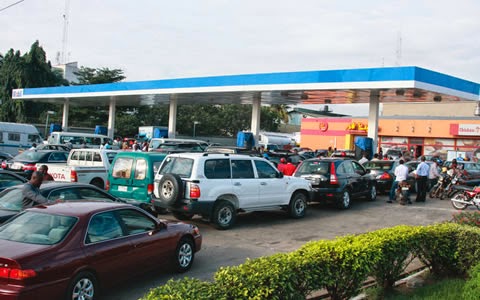One of the most controversial issues in Nigeria’s oil sector, one of Africa’s largest oil producers, is the country’s daily petrol consumption as different government agencies have mostly released contradictory figures including key players like the ministry of petroleum resources, the Nigerian National Petroleum Corporation Ltd (NNPC), the Petroleum Product Pricing Regulatory Agency (PPPRA), the Department of Petroleum Resources (DPR) and the Petroleum Equalization Fund (PEF).
Years back, the National Bureau of Statistics (NBS), Nigeria’s repository of data, disclosed that it couldn’t state the country’s exact fuel consumption figures, as all the public data available were untrustworthy. Till today, the situation has remained unchanged.
By the numbers
It is no news that despite Nigeria being one of Africa’s largest oil producers, Africa’s most populous nation imports all its petroleum products from outside the continent at enormous costs.
- Back in 2012, when private fuel marketers could import the petroleum product, Nigeria’s daily consumption inexplicably grew from below 30 million litres per day to almost 60 million litres.
- In 2017, the Minister of State for Petroleum Resources, Ibe Kachikwu, told a House of Representatives committee that the country’s daily consumption of petrol was 28 million litres, disclosing that the figure had dropped from between 50 – 55 million litres a day. Surprisingly, this figure contrasted NNPC’s peak figure of 84.2 million litres per day in December 2017.
- By February 2020, DPR put the county’s daily fuel consumption at 38.2 million. However, Mele Kyari, the Chief Executive officer of NNPC, Nigeria’s regulatory corporation in the petroleum sector, recently claimed that the country’s 216 million populace consumes 68 million litres of petrol daily.
State of play
In the speech revealing Nigeria’s daily fuel consumption, the NNPC boss blamed security agencies in the country for porous borders, which has encouraged massive smuggling of products to surrounding countries.
- This claim triggered a response from the angered Comptroller-General of Nigeria Customs Service, Col. Hameed Ali (retd.), who stated that the nation’s oil company was supplying an unaccounted daily excess of 38 million litres per day (assuming the country’s daily consumption is 60 million liters a day) as NNPC approves a daily supply of 98 million litres.
- NNPC reported that Lagos, Kano and Niger State were the highest demanding states of the product, with 170.4 million litres, 83.6 million litres and 82.3 million litres respectively, while Yobe, Bauch and Jigawa State were the lowest demand states at 4.2 million, 2.4 million and 1.3 million litres.
The big picture
As it stands, it appears that the mystery of Nigeria’s daily fuel consumption has defied every effort to solve it. However, many Nigerians believe that the deployment of appropriate political will might present a challenge to the situation that further weakened an already bleeding Nigerian economy.

